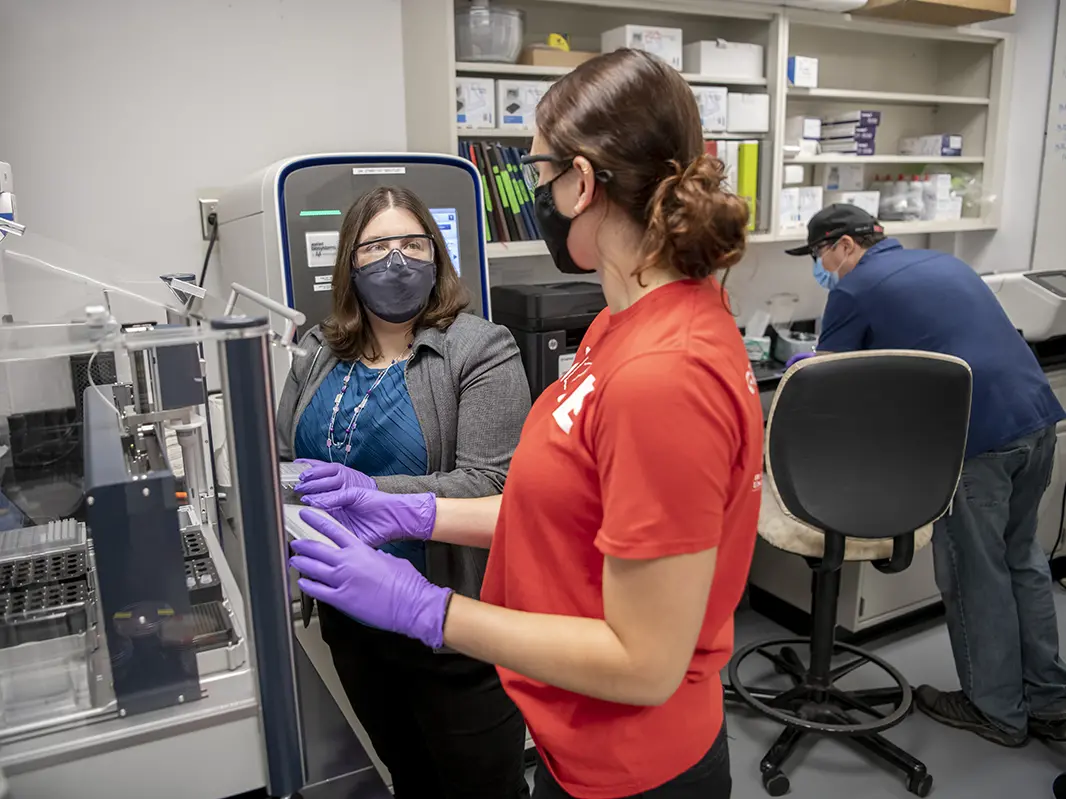A guide to conquering the digital world
Try employing these strategies to help keep the computers and devices that dominate our days from dominating our minds, relationships and worries.

(Getty Images)
Whether it be catching up with friends on FaceTime, playing video games, working online or scrolling through TikTok, digital activities have become a staple of modern life that can greatly impact your mental and emotional health, even your career and other dimensions of wellness.
At The Ohio State University, we recognize that wellness is multifaceted. That’s why we’ve identified 10 dimensions of wellness: physical, intellectual, emotional, financial, career, creative, environmental, spiritual, social and — the newest added to our list — digital. Digital wellness encompasses all of the actions you can take to make sure you are caring for your well-being while online and/or using electronic devices. When you are well from a digital standpoint, you consider the impact of your virtual presence and use of technology on your overall wellness. You take steps to create sustainable habits that support your values, goals, community and safety.
Here are some ways you can bolster your digital wellness:
Set limits on screen time.
Screen time can have significant adverse consequences for your emotional and physical health. Excessive use of digital devices has been linked with low self-esteem, sleep deprivation, high blood pressure and other negative health conditions. To be digitally well, monitor and limit time spent in front of televisions, tablets, phones and laptops. You can track your screen time through the internal settings of many common devices, through third-party applications or by manually keeping a log.
Stay grounded and connected.
While technology and social media can connect us to those far away, they also can be isolating to those physically close to us. Social media applications are designed to keep you constantly scrolling, making it easy to ignore those around you. Take time to disconnect from devices and connect with your people as part of your digital wellness. Remember, disconnect to connect!
Show your best self.
When you post on social media, you build your “brand”: the image of yourself that the world sees, including potential employers and professional organizations. Part of forging a healthy relationship with social media is being careful with what you are posting and the digital identity you create online. Before posting, think about whether the content is hurtful or appropriate for yourself or others.
Avoid Zoom fatigue.
Video conferencing can be far more exhausting than in-person meetings. We are not accustomed to seeing our own faces during normal day-to-day interactions and not used to seeing so many faces head-on at once. Furthermore, we don’t have people’s body language and gestures to help interpret what they are saying, and we may need to exaggerate our own gestures to be understood. Your brain actually expends energy trying to figure these things out. While you may be able to stand, stretch or walk around during a regular meeting or class, video conferences can keep you glued to your seat. It’s no wonder you’re tired!
To help, try these methods:
- Sit farther from your monitor or minimize the size of the person speaking on screen.
- Use a setting that shows only the person talking so you don’t have to watch yourself.
- Take “camera off” breaks to move around.
- If you don’t have a standing desk, put your laptop on a cardboard box so you have freedom to stand.
- Consider shortening meetings from an hour to 50 minutes. That way, all participants can have 10 minutes of recovery time.
Approach strangers wisely, online and in person.
Anytime you meet someone new who is not part of your real-world community, there are risks to consider, including fraud, intent to harm and privacy breaches. To avoid dangerous situations, limit the amount of personal information you share online and check for mutual friends on social media.
When meeting an online acquaintance in person, avoid dangerous situations. Before you leave, tell a friend or family member where you are going, when you expect to be home and whom you are going to see. Meet for the first time in a public place, provide your own transportation and have an exit strategy even if you have every reason to believe things will go well. Don’t feel obligated to meet anyone you don’t want to just because they asked.
Be mindful of your digital footprint.
Your digital footprint encompasses every digital record you create online. This can include data being collected about the order you place on Grubhub or the website you visit to buy a new pair of jeans. This collected data can be sold to third parties, such as marketing organizations, and used for other purposes. Thinking critically about the digital footprint you create is important in protecting the privacy of your information and improving your digital wellness.




